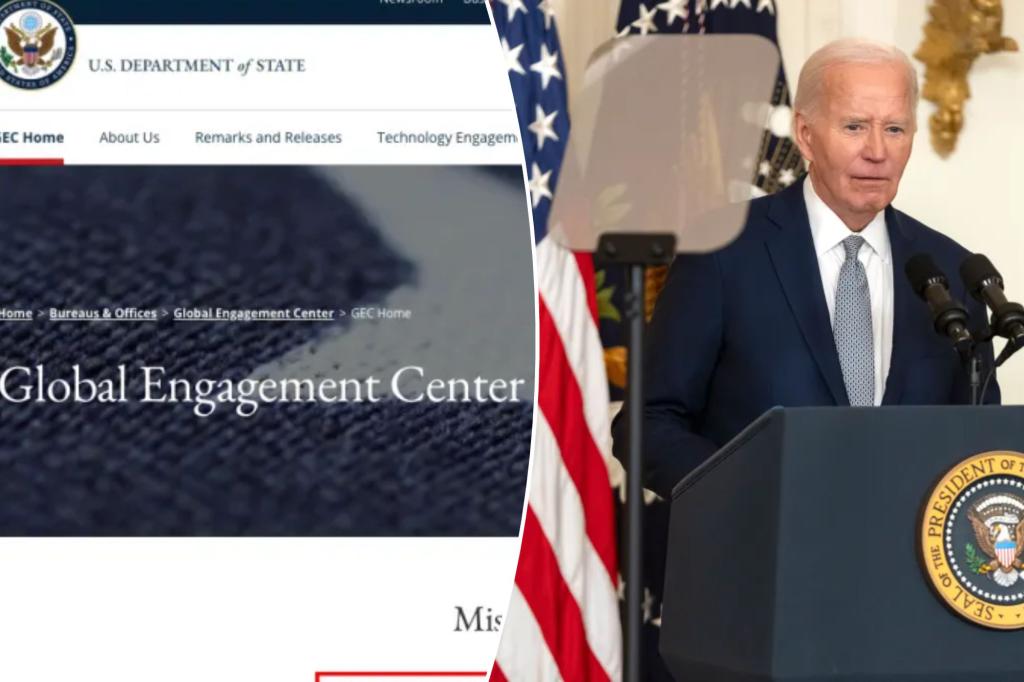The shuttering of the Global Engagement Center (GEC) and the subsequent creation of a new “Counter Foreign Information Manipulation and Interference (R/FIMI) Hub” within the State Department has ignited a firestorm of controversy, particularly among Republican lawmakers. The GEC, initially established to counter foreign disinformation campaigns, became increasingly mired in accusations of censorship targeting American citizens, sparking concerns about the potential for government overreach in regulating online speech. The proposed realignment of GEC staff and resources to the new R/FIMI Hub raises fears that the new office will simply perpetuate the same practices, essentially representing a rebranding rather than a substantive change in approach. This perceived continuity has prompted calls for congressional investigations to ensure transparency and accountability in the government’s efforts to combat foreign interference.
The central point of contention revolves around the GEC’s alleged involvement in pressuring social media platforms to censor American users. Critics argue that the GEC overstepped its original mandate, which focused on countering foreign propaganda, and instead engaged in domestic censorship by targeting viewpoints deemed undesirable or dissenting. Journalist Matt Taibbi’s “Twitter Files” revelations brought this issue to the forefront, exposing alleged coordination between the GEC and social media companies to suppress online discussions, including theories about the origins of the COVID-19 pandemic. This alleged collusion between government agencies and private platforms has raised serious concerns about the erosion of free speech principles and the potential for the government to manipulate online narratives.
Further fueling the controversy was the GEC’s financial support of the Global Disinformation Index (GDI), a non-profit organization that subsequently identified several conservative media outlets as purveyors of disinformation. This association raised questions about the GEC’s objectivity and its potential to use taxpayer funds to target political opponents. Critics argue that the GEC’s actions blurred the line between combating legitimate foreign interference and suppressing domestic dissent, creating a chilling effect on free speech and potentially undermining public trust in government institutions. The fact that the GDI received funding from the GEC before labeling certain news outlets as sources of disinformation creates a perception of bias and raises concerns about the potential misuse of government resources for political purposes.
The State Department’s decision to reallocate GEC resources to the new R/FIMI Hub without explicitly addressing these concerns has further exacerbated skepticism among Republicans. The lack of clear differentiation between the GEC’s activities and the proposed mandate of the new Hub has led many to believe that the reorganization is merely a cosmetic change designed to evade scrutiny. The absence of a detailed explanation regarding the Hub’s operational framework and its approach to countering foreign information manipulation has fueled suspicion that the same problematic practices will continue under a different name. This perceived lack of transparency has heightened calls for congressional oversight to ensure that the new Hub operates within constitutional boundaries and respects the principles of free speech.
The potential for government overreach in the realm of online speech represents a significant concern in the debate surrounding the GEC and its successor. Critics argue that the government’s efforts to combat foreign disinformation should not come at the expense of fundamental freedoms. A delicate balance must be struck between protecting national security and preserving the right to free expression. The lack of clear guidelines and safeguards regarding the government’s role in moderating online content raises concerns about the potential for abuse and the suppression of legitimate dissenting voices. The ongoing debate highlights the need for a robust public discourse about the appropriate level of government involvement in regulating online speech and the importance of protecting free speech principles in the digital age.
The controversy surrounding the GEC, its closure, and the creation of the R/FIMI Hub underscore the complex challenges facing democracies in the face of foreign information operations. Balancing national security concerns with the protection of fundamental rights requires careful consideration and robust oversight. The lack of transparency surrounding the transition from the GEC to the new Hub has further fueled concerns about the potential for government overreach and the suppression of dissent. Moving forward, it is crucial that the government operates with transparency and accountability in its efforts to counter foreign interference, ensuring that its actions respect constitutional principles and uphold the right to free speech. The ongoing debate serves as a reminder of the importance of vigilance in safeguarding democratic values in an increasingly complex and interconnected world.










